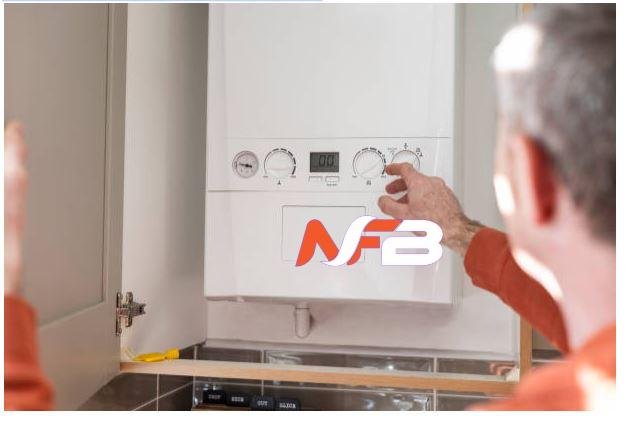The quest for energy efficiency and environmental sustainability has driven significant advancements in home heating technologies. Among these innovations is the hot water heat pump, a system that offers a promising alternative to traditional water heaters.
In this article, we will explore how hot water heat pumps compare to conventional water heaters in terms of efficiency, cost, environmental impact, and practicality.
Hot Water Heat Pumps vs. Traditional Heaters: A Comparison
1. Efficiency
One of the primary advantages of hot water heat pumps is their superior efficiency compared to traditional water heaters. Conventional water heaters typically rely on electrical resistance or combustion to generate heat. In contrast, hot water heat pumps work by extracting heat from the surrounding air, ground, or water, and transferring it to the water in the tank. This process can be up to three times more efficient than traditional methods.
The efficiency of hot water heat pumps is measured by the Coefficient of Performance (COP), which indicates the ratio of useful heating or cooling provided to the energy consumed. For instance, a heat pump with a COP of 3.0 means that for every unit of electricity consumed, it delivers three units of heating energy. Traditional electric water heaters, on the other hand, have a COP of about 1.0, as they directly convert electricity into heat.
2. Cost
While hot water heat pumps are generally more expensive to purchase and install than traditional water heaters, they can offer significant savings over time due to their high efficiency. The initial cost of a hot water heat pump can be two to three times higher than that of a conventional water heater. However, the lower operating costs can result in substantial savings on energy bills, often making up for the higher upfront investment within a few years.
Additionally, many governments and utility companies offer incentives and rebates for the installation of energy-efficient appliances, including hot water heat pumps. These financial incentives can help offset the initial cost, making them a more attractive option for homeowners.
3. Environmental Impact
Hot water heat pumps have a lower environmental impact compared to traditional water heaters, primarily due to their high efficiency and reduced energy consumption. By using ambient heat from the air or ground, heat pumps require less electricity or fossil fuels to operate. This reduction in energy use translates to lower greenhouse gas emissions, contributing to the fight against climate change.
Moreover, many hot water heat pumps use environmentally friendly refrigerants, which have a lower global warming potential (GWP) compared to the refrigerants used in older models and some traditional heating systems. This further enhances their environmental credentials.
In contrast, traditional water heaters, especially those powered by fossil fuels like natural gas or propane, contribute to carbon emissions and air pollution. Even electric water heaters, if powered by electricity from non-renewable sources, have a significant carbon footprint.
4. Practicality and Installation
When considering the practicality of hot water heat pumps, it is important to note that they have some specific installation requirements. For instance, because they extract heat from the surrounding environment, they are best suited for locations with moderate to warm climates. In colder climates, their efficiency can decrease, although modern heat pumps are increasingly designed to perform well even in lower temperatures.
Hot water heat pumps also require more space than traditional water heaters because they need adequate airflow to function efficiently. They are often installed in basements, garages, or utility rooms where there is sufficient space and ventilation.
On the other hand, traditional water heaters are typically more straightforward to install and can be placed in smaller spaces. They do not rely on the ambient environment for heat extraction, making them suitable for a wider range of climates and locations.
5. Reliability and Maintenance
Both hot water heat pumps and traditional water heaters are generally reliable, but there are differences in their maintenance requirements. Hot water heat pumps tend to have more complex systems, including compressors and refrigerants, which may require regular maintenance to ensure optimal performance. This maintenance might include checking refrigerant levels, cleaning filters, and ensuring proper airflow.
Traditional water heaters, particularly those powered by electricity or gas, typically have simpler mechanisms and may require less frequent maintenance. However, they are not without their issues; for example, sediment buildup in the tank can affect efficiency and lifespan, necessitating periodic flushing.
6. Lifespan
The lifespan of hot water heat pumps is comparable to that of traditional water heaters, with both types typically lasting around 10 to 15 years. However, with proper maintenance, hot water heat pumps can sometimes exceed this average lifespan. The durability and longevity of both systems can be influenced by factors such as water quality, usage patterns, and maintenance routines.
7. Noise Levels
Another consideration is the noise level associated with each type of system. Hot water heat pumps can be noisier than traditional water heaters due to the operation of the compressor and fans. This noise can be a concern if the unit is installed in a living space. However, advancements in technology have led to quieter models, and strategic placement of the unit can mitigate noise issues.
Traditional water heaters, particularly electric models, tend to operate more quietly. Gas water heaters may produce some noise from the burner and exhaust, but this is usually minimal compared to the operational noise of a heat pump.
Conclusion
In summary, hot water heat pumps offer numerous advantages over traditional water heaters, particularly in terms of efficiency, environmental impact, and long-term cost savings. While the initial investment may be higher, the reduced energy consumption and potential incentives can make them a cost-effective choice in the long run. Additionally, their lower environmental footprint makes them an attractive option for those looking to reduce their carbon emissions.
However, the practicality of hot water heat pumps depends on factors such as climate, space availability, and noise tolerance. Homeowners in colder climates or those with limited installation space may find traditional water heaters to be more suitable.
Ultimately, the choice between a hot water heat pump and a traditional water heater will depend on individual circumstances, including budget, environmental priorities, and specific household needs. By carefully considering these factors, homeowners can select the water heating solution that best meets their requirements while contributing to energy efficiency and environmental sustainability.












Leave a Reply